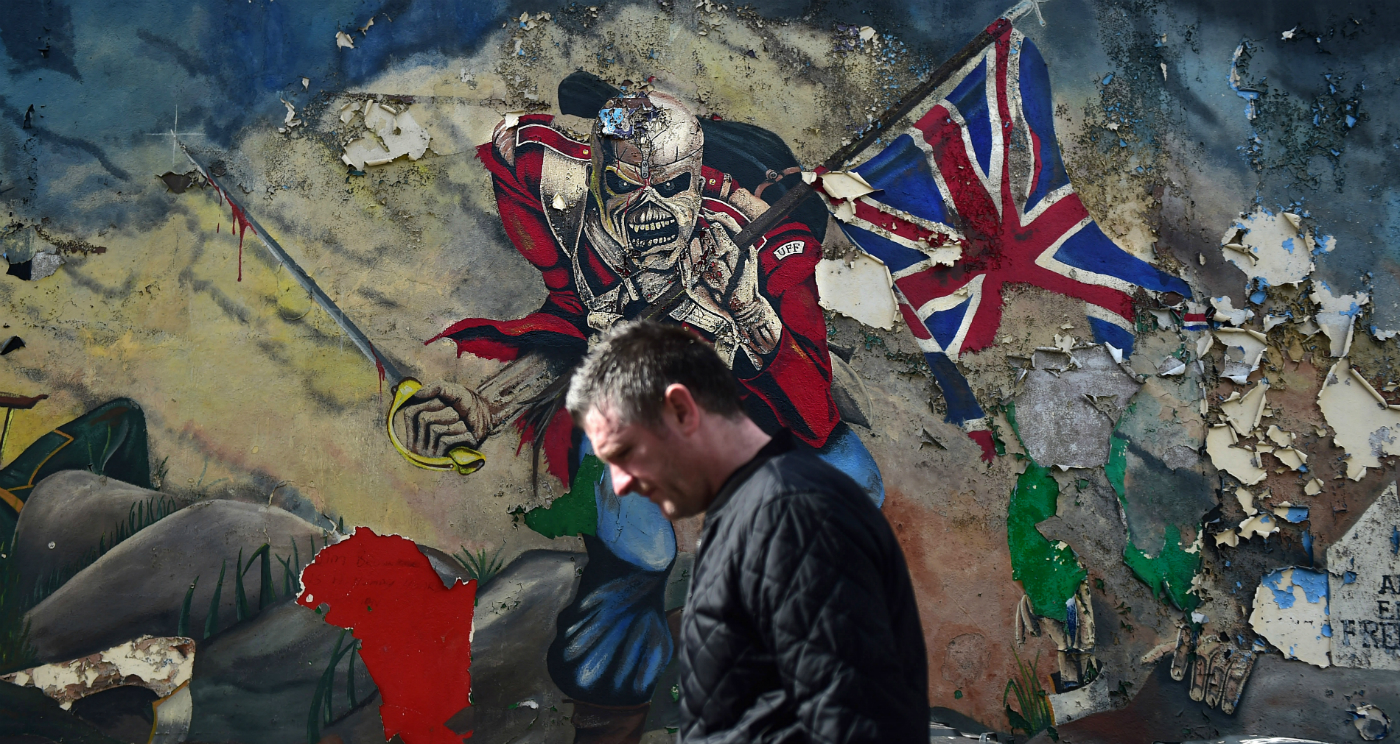Brexit: May has days to resolve century-old Irish border dispute
In Depth: EU stand-off dredges up long history of bloodshed in Ireland

A free daily email with the biggest news stories of the day – and the best features from TheWeek.com
You are now subscribed
Your newsletter sign-up was successful
When Theresa May told Parliament this week that there were just “a couple of issues” to resolve before Brexit talks could move on to UK-EU trade, the PM neglected to mention that one of them was a century-old ongoing feud dating back to the Anglo-Irish war.
“The arbitrary line of partition London imposed on the Free State in 1920 helped to spark the Troubles, and is still a lingering grievance,” writes author and historian Caoimhin de Barra in The Guardian.
The EU’s chief Brexit negotiator, Michel Barnier, has warned May that unless she brokers a deal on the Irish border by Sunday at midnight - extending his original 48-hour deadline of Friday night - then UK-EU trade talks will be suspended. May was hoping for flexibility from Ireland’s leaders; instead, politicians on both sides of border dug in.
The Week
Escape your echo chamber. Get the facts behind the news, plus analysis from multiple perspectives.

Sign up for The Week's Free Newsletters
From our morning news briefing to a weekly Good News Newsletter, get the best of The Week delivered directly to your inbox.
From our morning news briefing to a weekly Good News Newsletter, get the best of The Week delivered directly to your inbox.
“The Irish are prepared to get tough - all of them,” Bloomberg says.
What May didn’t admit when she updated Parliament this week is that the Irish border question has a long and deadly history that has been dredged up by the Brexit discussion. Hardliners, north and south, are not in a hurry to forgive and forget.
The perils of home rule
The border dispute dates back almost a century to the Anglo-Irish War, which raged from 1919 to 1921, and the introduction by Westminster of the 1920 Government of Ireland Act, allowing for Irish home rule through two parliaments, in Dublin and Belfast.
A free daily email with the biggest news stories of the day – and the best features from TheWeek.com
Six of Ireland’s 32 counties became Northern Ireland, but debate over the exact border between north and south threatened to erupt into another war, so both sides reverted to using the old county boundaries.
As a result, Ireland’s 310-mile-long meandering border randomly cuts through fields, divides bridges in half and slices through homes. Some couples go to bed in Northern Ireland and have their breakfast in the Republic of Ireland, Sky News reports.
For much of the late 20th century, the Irish border was also the front line in the Troubles, a bloody 30-year conflict that claimed 3,600 lives and pitted Republicans - generally Catholics backing a united Ireland - against loyalists, primarily Protestants, and an armed military maintaining British rule over Northern Ireland.
Hard border or hard choices
The 1998 Good Friday Agreement brought an end to those decades of sectarian violence, and life on both sides of border began to transform, albeit slowly.
“Ugly concrete blocks squatting on hundreds of country roads linking north and south were suddenly yanked. The soldiers in their camouflage passed out of view,” the BBC says. “In 2003, they took away the checkpoint at Newry. They pulled down the ugly iron cage, the military turret high on the hill above the church at Cloughoge.”
Some 35,000 people now freely criss-cross the Irish border every day, darting from home to work or school - north to south and vice versa.
With the border’s dark history still a vivid memory, Dublin refuses to accept a return to a “hard border” of checkpoints, sentries and British soldiers, fearing a return to sectarian violence. But Belfast also has a red line. Northern Ireland won’t accept a deal that imposes regulatory differences between its six counties and the rest of UK.
“To hard-line unionists, whose central tenet is to be part of the United Kingdom, any talk of a special status for Northern Ireland smacked of separating them economically and politically from Britain and pushing them toward the Republic of Ireland,” says The New York Times.
The parallels in Brexit border discussions and the debate that divided Ireland a century ago are not lost on either of the two opposing sides. Theresa May’s work is cut out for her if she is to find an agreement by midnight Sunday that heals old wounds and does not rekindle a war.
As Caoimhin de Barra says: “Irish communities divided by terror are now whole. Brexit could tear us apart again.”